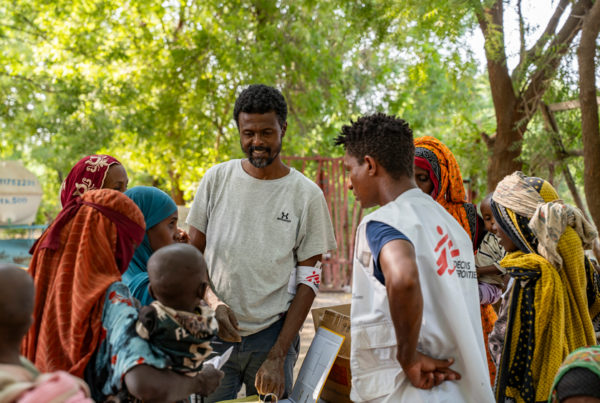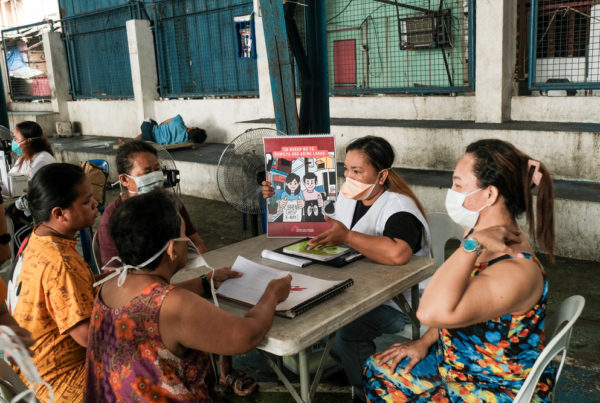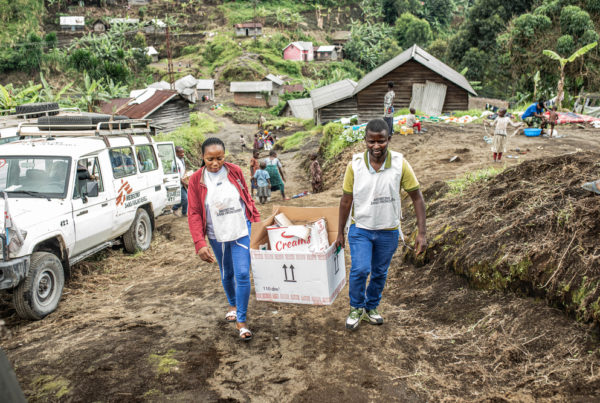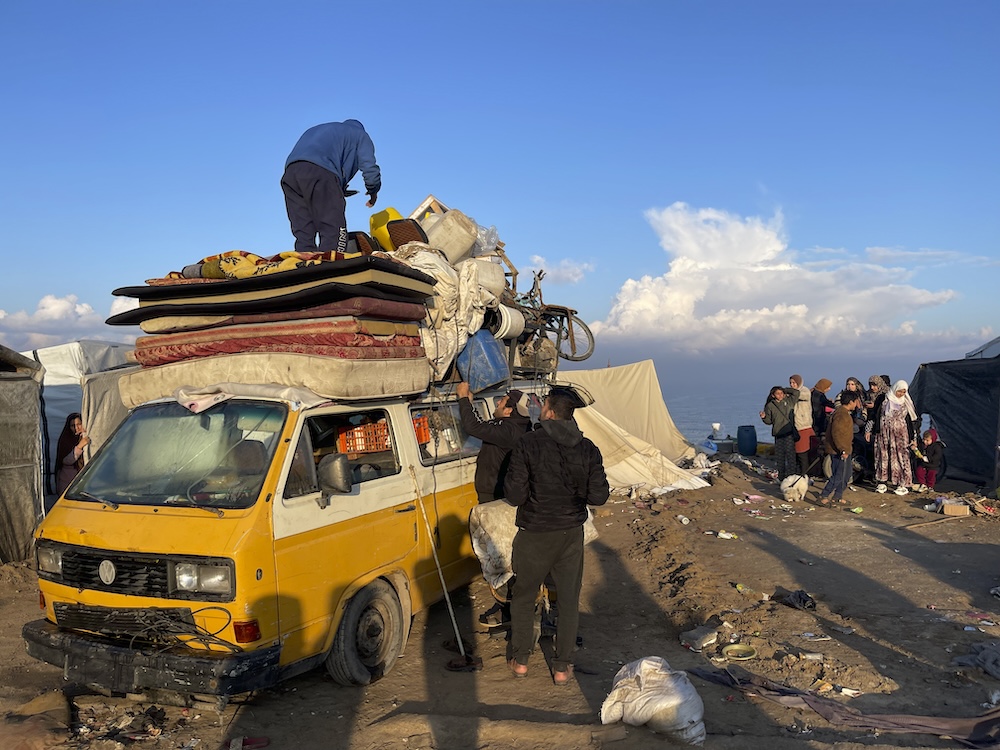
What happens when the authority you need to speak to is sanctioned?
Sanctions can be broad or targeted, financial or travel-related, and they often intersect with the humanitarian imperative to access and assist people in need.
In a recent CCHN webinar, expert Delaney Simon and humanitarian leader Mustafa Alokoud discussed what it means to negotiate with authorities under sanctions. Their conversation offered both legal and practical insights that are useful for anyone working on the frontlines of humanitarian response.
What are sanctions and why should humanitarians care?
Sanctions are tools used by governments, the United Nations, and multilateral organisations to pressure countries, groups, or individuals to change their behaviour. Think of them as economic and diplomatic pressure designed to isolate certain actors without putting “boots on the ground.”
The problem?
Sanctions have exploded in use over the past 20 years. What started as targeted measures against specific individuals has often morphed into comprehensive restrictions that affect entire economies and populations.
Today’s types of sanctions include:
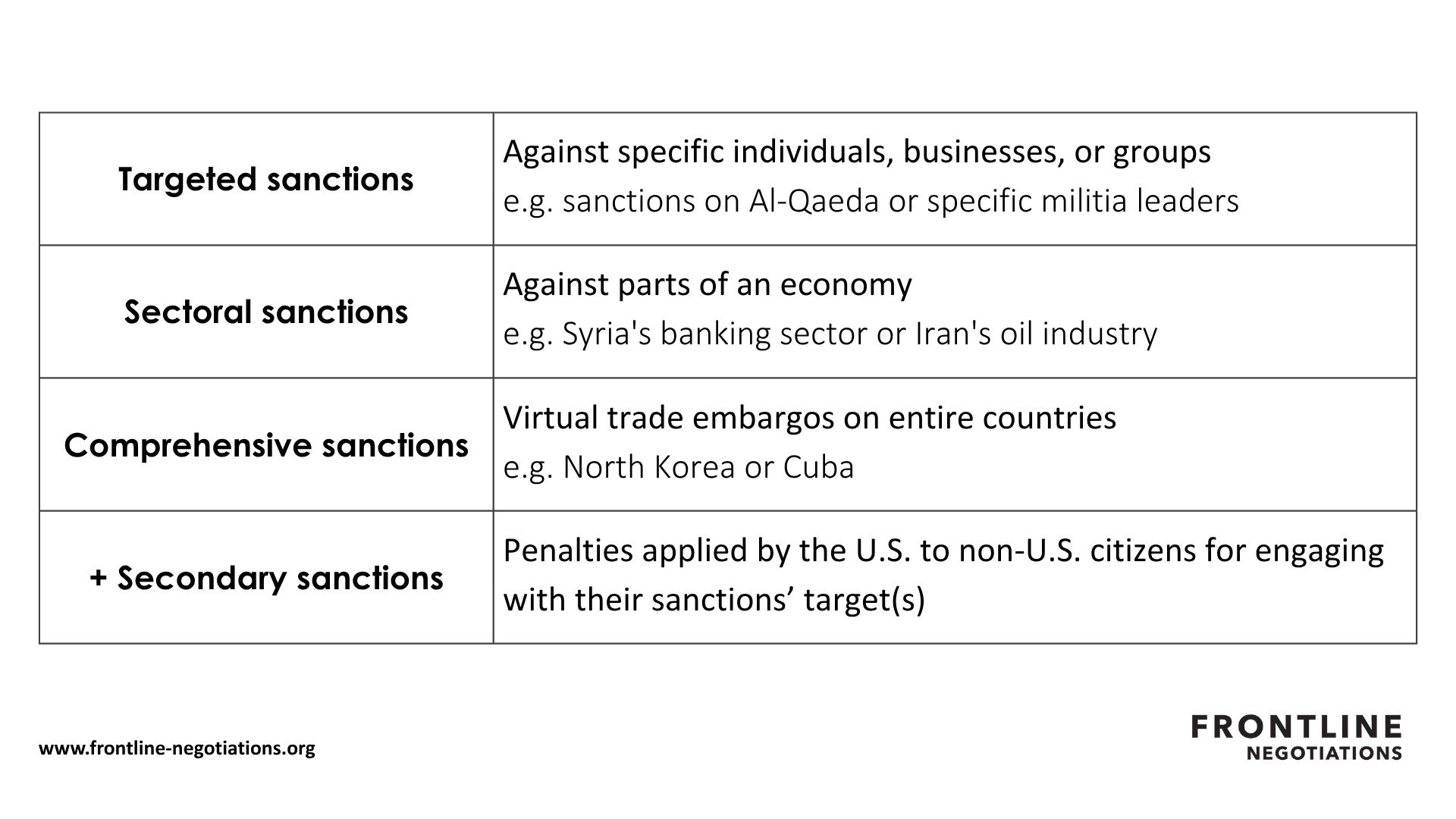
For humanitarian workers, understanding how sanctions work matters. Whether it’s negotiating access with de facto authorities in Yemen, coordinating aid distribution in Afghanistan, or working around terrorist-designated groups in the Sahel, sanctions are part of our daily reality.
The compliance maze: Understanding what's allowed and what's not
Here’s where it gets tricky.
👉 Most humanitarian activities are actually exempt from sanctions regimes.
The United States, the United Kingdom, the European Union, and the United Nations all have humanitarian carve-outs that allow aid organisations to deliver assistance even in heavily sanctioned areas.
But knowing the law and convincing banks, suppliers, and even your own legal team that your work is permitted are two different challenges entirely.

What sanctions typically prohibit:
- Financial transactions with sanctioned parties
- Trade in certain goods or services
- Providing “material support” to designated groups
- Business partnerships with sanctioned entities
By nationals of the country that applied the sanctions, or foreign nationals, if U.S. secondary sanctions exist.

What humanitarian exemptions usually allow:
- Delivery of food, medicine, and emergency supplies
- Coordination discussions about humanitarian access
- Payment of salaries to local staff
- Basic operational activities to reach affected populations
The key word here is “usually.” Every sanctions regime is different, and the devil is always in the details.
Real-world challenges: Lessons from the field
Take the example of cross-border operations in northwest Syria. Humanitarian organisations there faced multiple layers of sanctions – US designations on certain groups, EU restrictions, and various national sanctions programs. Yet millions of people depended (and still do) on aid flowing through these channels.
Field teams have had to navigate:
- Financial constraints: Banks refusing transfers due to over-compliance, forcing organisations to rely on informal money transfer systems or cash deliveries.
- Operational barriers: Restrictions on importing medical equipment or communications technology that could be deemed “dual-use” items.
- Access challenges: Needing to coordinate with de facto authorities while avoiding any appearance of legitimising or supporting sanctioned groups.
- Bureaucratic hurdles: Managing multiple levels of compliance – organisational policies, host country regulations, donor requirements, and sanctions regimes.
The result? Organisations often spend more time on compliance documentation than on actual program delivery.
Six strategies for principled engagement under sanctions
Based on field experiences and legal expertise, here are practical approaches that can help you and your organisation navigate sanctioned environments while maintaining compliance.
1. Don't assume you can't work there
Many organisations avoid sanctioned areas entirely, thinking it’s too complicated or risky. But sanctions regimes almost never prohibit humanitarian coordination discussions. In fact, most explicitly allow conversations about humanitarian access.
The key is understanding the difference between:
- Prohibited activities: Providing material support, financial assistance, or resources to sanctioned parties.
- Permitted activities: Humanitarian coordination, access discussions, and aid delivery to affected populations.

Delaney Simon, Senior Analyst at the U.S. Programme, International Crisis Group
“Don’t assume that sanctions mean you can’t talk to sanctioned individuals. […] Sanctions regimes never say you can’t speak to someone about humanitarian access. […] There’s always a way to talk to a sanctioned party.”
2. Get comfortable with the uncomfortable
As one legal expert put it: “If you want to work in these places, you have to accept some level of risk.” The goal isn’t zero risk – it’s managing risk appropriately while still reaching people who need help.
This means:
- Documenting your humanitarian purpose clearly
- Maintaining detailed records of all interactions
- Being transparent with donors and partners about your operating environment
- Having clear escalation procedures for difficult situations
3. Work collectively, not alone
Some of the biggest breakthroughs in sanctions policy have come from humanitarian organisations working together. The UN’s humanitarian exemption (Resolution 2664) exists because humanitarian actors collectively advocated for it.
Collective approaches work because:
- They provide legal safety in numbers
- They create opportunities to share best practices and compliance strategies
- They give humanitarian voices more weight in policy discussions
- They help establish consistent standards across the sector
4. Be proactive about seeking clarity
Don’t wait for problems to arise. If you’re working in a sanctioned environment, proactively seek licenses, comfort letters, or other assurances from relevant authorities. This might include:
- Applying for specific licenses from treasury departments
- Seeking written confirmation that your activities fall under humanitarian exemptions
- Engaging with sanctions authorities to clarify grey areas
- Documenting your humanitarian purpose and compliance measures
5. Educate your private sector partners
Banks, suppliers, and service providers often know less about humanitarian exemptions than you do. They may refuse to work with you, not because it’s illegal, but because they don’t understand what’s actually permitted.
Successful education strategies include:
- Sharing general licenses and exemption texts with financial partners
- Providing clear documentation of your humanitarian mandate
- Offering to connect partners with legal experts who can explain the exemptions
- Building long-term relationships with institutions that understand humanitarian work
6. Maintain humanitarian principles throughout
Whatever approach you take, never compromise on the core humanitarian principles of humanity, neutrality, impartiality, and independence. These principles aren’t just ethical guidelines – they’re often your legal protection.
Sanctions authorities generally respect principled humanitarian action. Problems arise when organisations appear to support sanctioned parties for non-humanitarian reasons or can’t clearly demonstrate their humanitarian purpose.
When flags change: Adapting to shifting political realities
One of the biggest challenges in sanctions regimes is their stickiness. Sanctions are much easier to impose than to lift, and they often outlast the political situations that created them.
Take Afghanistan as an example. When the Taliban took control in 2021, existing sanctions suddenly applied to the de facto government of an entire country where millions needed humanitarian assistance. The result was economic collapse and a humanitarian catastrophe that went far beyond the original sanctions’ intended targets.
Similar dynamics play out whenever there are political transitions in sanctioned environments.
The key is to:
- Prepare for political changes: Understand how different scenarios might affect your operations and compliance requirements.
- Engage early with new authorities: Establish humanitarian coordination channels quickly after political transitions.
- Advocate for policy changes: Work collectively to ensure sanctions policies keep pace with ground realities.
- Maintain operational flexibility: Have multiple contingency plans for different political scenarios.
Syria is an excellent example of this. When the Assad regime fell in December 2024, humanitarian organisations working in the country suddenly faced a completely transformed sanctions landscape.
By May 2025, the United States had lifted their sanctions against Syria, followed by similar moves by the European Union. For humanitarian actors who had spent over a decade navigating complex sanctions regimes while delivering aid to Syrian populations, this represented a fundamental shift in their operating environment.
Organisations that had developed sophisticated compliance systems and workarounds for sanctioned territories suddenly found themselves in a sanctions-free environment with new opportunities for direct engagement, financial transactions, and operational partnerships.
However, the transition also brought new challenges: ensuring staff understood the changed legal landscape, adapting operational procedures designed for sanctions compliance, and navigating relationships with authorities who were no longer under international restrictions.
Building bridges: The humanitarian negotiation advantage
Here’s something that might surprise you: Being a humanitarian organisation can actually be an advantage when negotiating with sanctioned authorities.
Why? Because humanitarian organisations offer something that sanctioned authorities desperately need – legitimacy and connection to the international community.
Sanctioned authorities often face:
- International isolation
- Limited access to global financial systems
- Difficulty providing basic services to populations
- Pressure to demonstrate they can govern effectively
Humanitarian organisations, operating under humanitarian principles, can provide:
- Neutral channels for addressing population needs
- Technical expertise and resources
- International recognition of their humanitarian role
- Opportunities to demonstrate responsible governance
This creates natural opportunities for principled negotiation – but only if humanitarian organisations approach these discussions carefully and transparently.
Practical negotiation tactics in sanctioned environments
When you do need to engage with sanctioned authorities, these approaches can help:
- Be explicit about your humanitarian purpose: Start every conversation by clearly stating your humanitarian mandate and principles.
- Focus on population needs: Frame discussions around the needs of affected people, not the interests of the authorities.
- Document everything: Keep detailed records of all interactions, including the humanitarian justification for each engagement.
- Use intermediaries when appropriate: Sometimes, trusted third parties can facilitate discussions more effectively than direct engagement.
- Set clear boundaries: Be explicit about what you can and cannot do under humanitarian exemptions.
- Maintain transparency: Keep donors, partners, and relevant authorities informed about your engagement approach.

Mustafa Alokoud, Humanitarian Leader at Hope Revival, Syria
“Negotiating with de facto authorities, while upholding the humanitarian principles and avoiding legal risk, requires careful principled engagement and often extensive dialogue with trusted intermediaries, like the Access Working Group or sometimes our colleagues in Geneva Call.”
The compliance toolkit: Essential documentation
Effective compliance in sanctioned environments requires systematic documentation. Essential elements include:
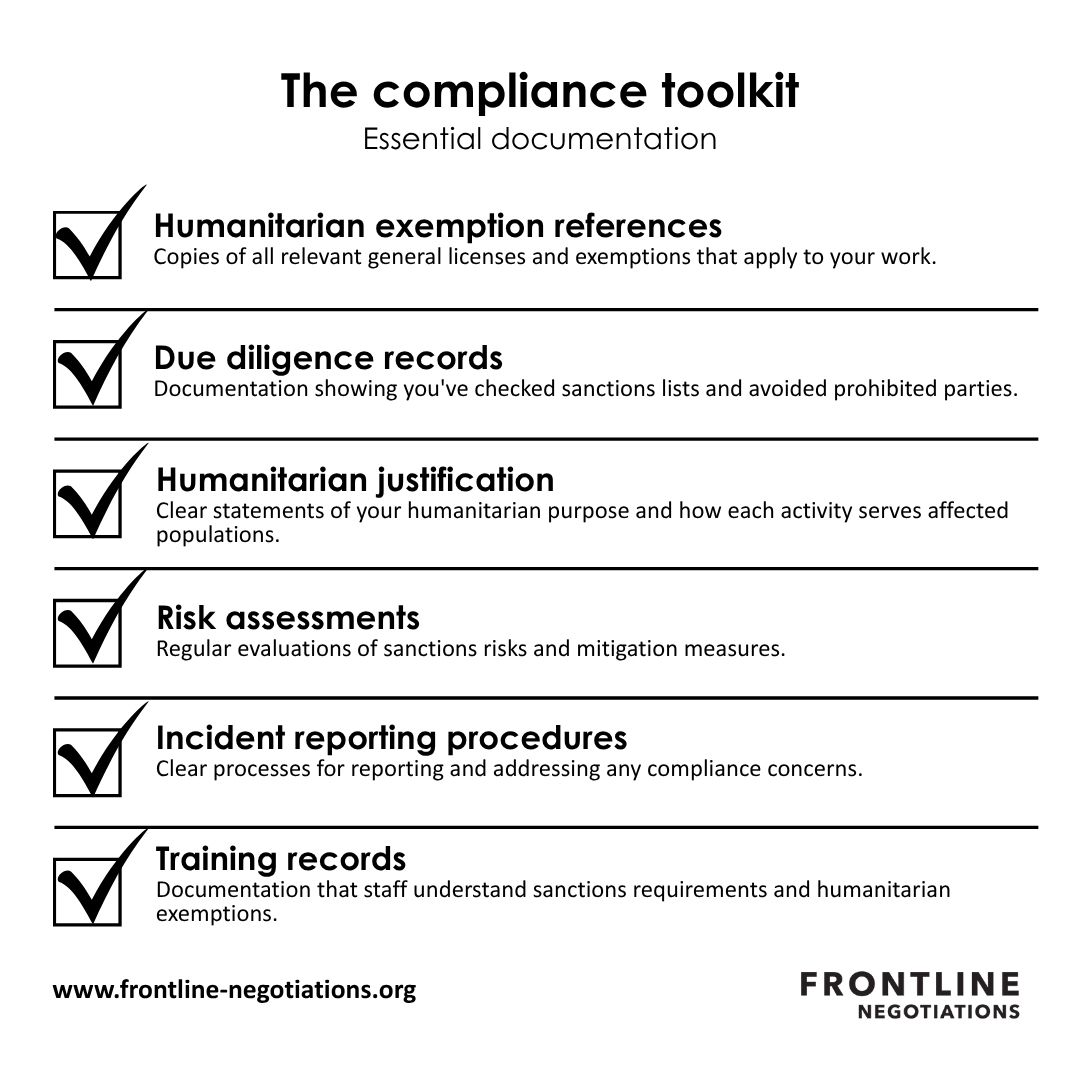
Looking ahead: The future of humanitarian work in sanctioned environments
Sanctions aren’t going away. If anything, they’re likely to become more common as governments look for alternatives to military intervention.
This means humanitarian organisations need to get better at:
- Understanding sanctions regimes: Investing in legal expertise and compliance systems.
- Collective advocacy: Working together to ensure humanitarian exemptions keep pace with operational needs.
- Innovation: Finding creative ways to deliver assistance while maintaining compliance.
- Relationship building: Developing long-term partnerships with financial institutions and other service providers.
- Documentation: Maintaining the records needed to demonstrate humanitarian purpose and compliance.
The goal isn’t to avoid sanctioned environments – it’s to work effectively within them while maintaining both legal compliance and humanitarian principles.
Remember…
Navigating sanctions as a humanitarian organisation can feel overwhelming, but remember that you’re part of a community facing similar challenges.
Whether you’re negotiating access with a sanctioned group, explaining humanitarian exemptions to a nervous bank, or trying to maintain operations after a political transition, other humanitarian actors have faced similar situations.
The key is to:
- Seek support from peers and networks
- Share experiences and best practices
- Work collectively on policy advocacy
- Maintain focus on the people you’re trying to help
Your next negotiation with a sanctioned authority might be challenging, but it’s not impossible. With preparation, principles, and persistence, humanitarian organisations can continue to build bridges and deliver assistance even in the most sanctioned corners of our world.
Good luck!

